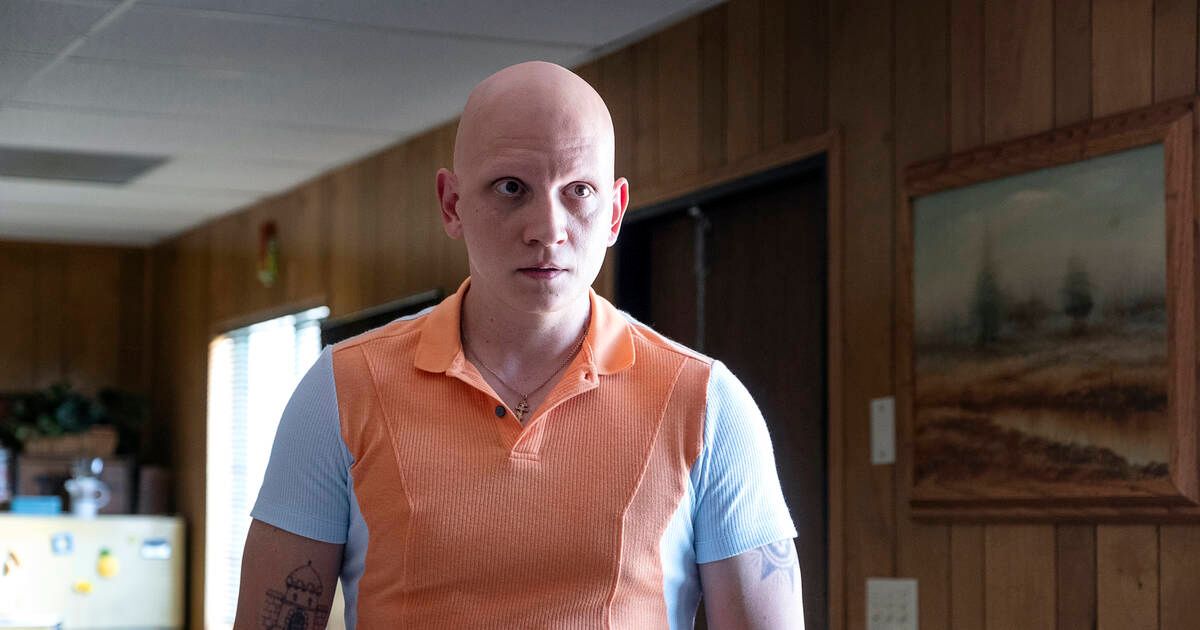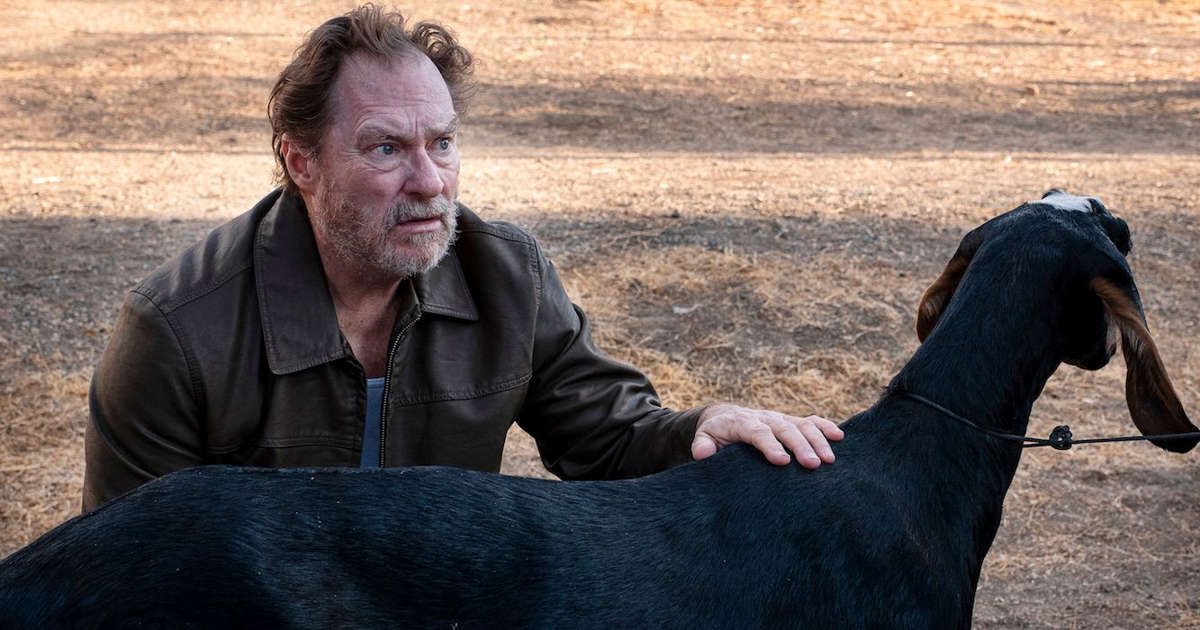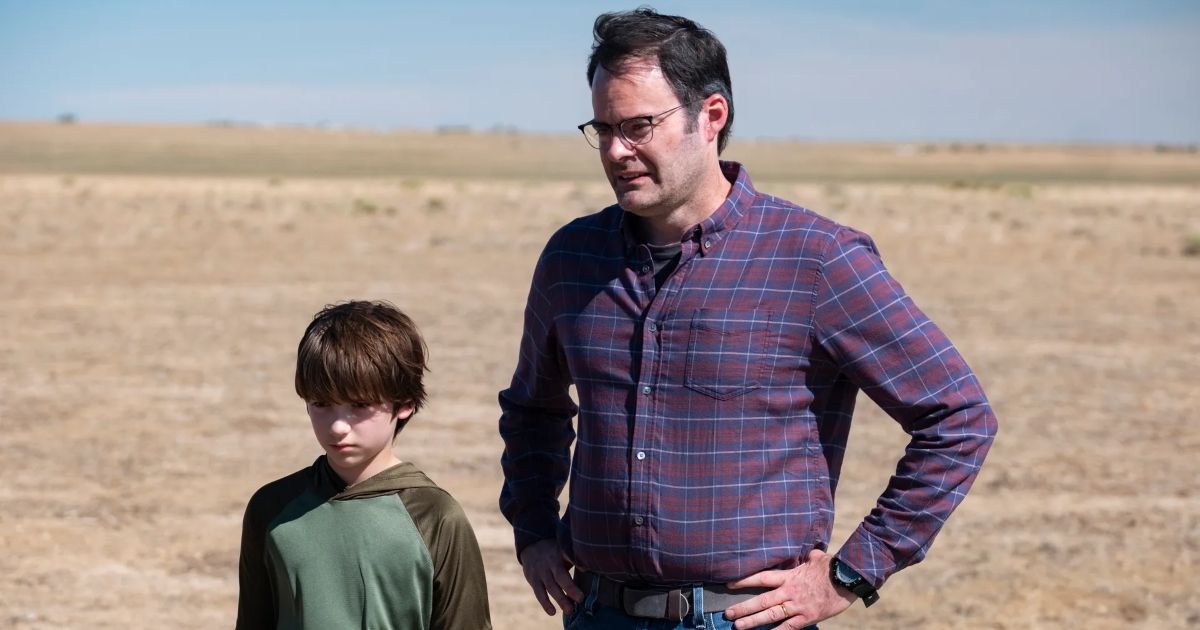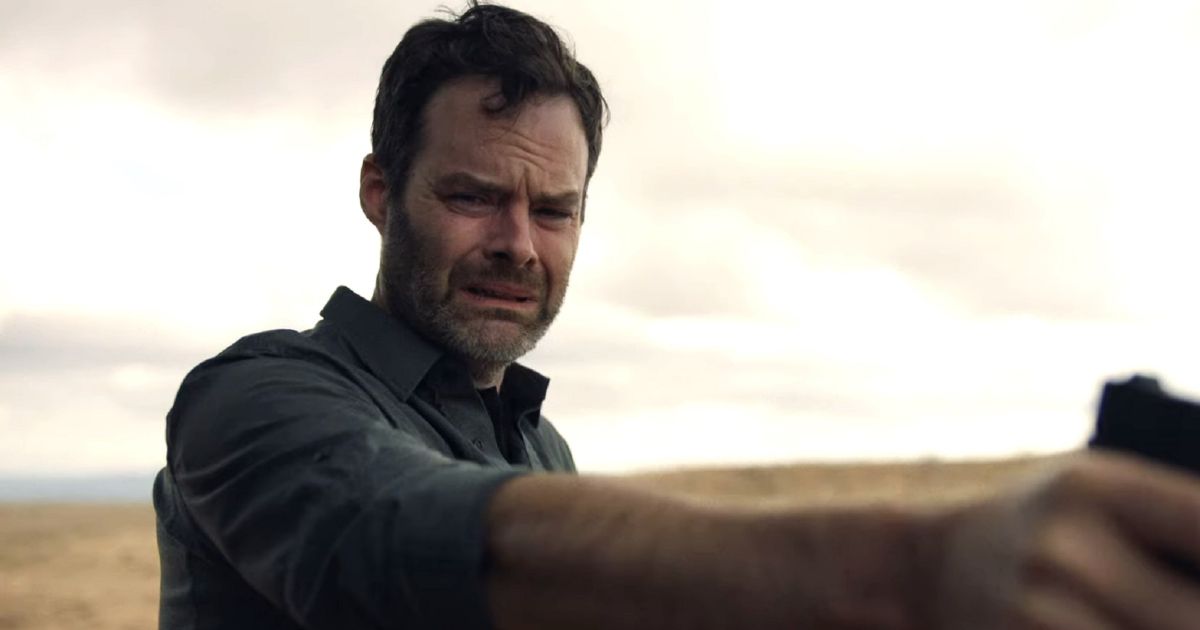This article contains spoilers for the HBO series Barry.HBO’s Barry struck a chord with fans. With four seasons in the can and an emotional series finale, with all episodes in the last season directed by series star and creator Bill Hader, it’s only natural to wonder what happened to everyone’s favorite assassin and aspiring actor, Barry Berkman. Not to mention his acting teacher Gene Cousineau (the wonderful Henry Winkler), NoHo Hank (Anthony Carrigan), Barry’s long-suffering girlfriend Sally (Sarah Goldberg), and his twisted uncle/handler Monroe Fuches (Stephen Root).
Updated May 30, 2023: This article has been updated following the conclusion of Barry season 4 and the end of the series.
As indicated by the trajectory that seasons three of Barry took, fans knew they were in for a dark ride in the final season. Over the course of the series, Hader’s Barry saw his inner darkness, criminal nature, and ruthlessness take over. Whereas the first two seasons of Barry had many moments of humor, the following two took fans on a dive into the depths of Barry’s psychopathy, not to mention the absolute darkest moments of the show for every character. Barry Berkman is a complicated character. He wants to be something more than a mid-level hitman for hire, yet he can’t seem to resist the lure of just one more hit, drawing more people into his dark web of crime and deceit.
Many have labeled Barry a psychopath. Psychopathy is a very complex condition, with many similar disorders, like sociopathy, that tend to be misdiagnosed by the public often. A reporter asked Hader if he thought Barry was a psychopath. Hader answered, “Oh my gosh. I don’t know. I really don’t know,” he said. “That would be interesting to see what someone would think about him. You know, I should ask a therapist.” It is worth noting that not every person who is a psychopath is destined to become a killer like Barry or seemingly every other serial killer in Hollywood movies. In the same sense, not every killer is a psychopath, medically speaking. Please do not attempt to self-diagnose or diagnose/treat others. With that in mind, though, what does Barry the series say about how a person can change and if he is truly suffering from psychopathy or is something more?
Barry’s Role in the Series
Barry season one introduced its audience to ex-Marine and current hitman Barry Berkman. He’s from Cleveland and got into the assassin business via his ‘uncle,’ Monroe Fuches. Barry goes to Los Angeles to perform a hit, and it turns out his mark is an aspiring actor. Barry tracks him to his acting class, becomes enamored with the people and instructor, and gets obsessed with the idea that maybe he could do something other than be a hitman. Barry discovers the human connection and the healing power of creativity and finds that he likes it, even though he’s super awkward about it. After all, being an assassin is a lonely business.
At the end of season one, Detective Janice Moss, the police officer investigating Barry’s various murders (and also the girlfriend of acting teacher Gene), is murdered — by Barry, of course. She had figured out Barry’s connections to the crimes she was investigating. Things were going too well in Barry’s personal life with his girlfriend Sally and the play they were going to put on together, so Barry could not let her derail his new life.
In season two, Barry’s personality intensifies. It gets both darker and sweeter. As he falls more in love with Sally and acting, he also falls deeper into murder in order to keep up his nice guy facade. Season two also develops the bromance (which is really a romance) between Chechen mob boss NoHo Hank and the leader of the local L.A. Bolivian crime syndicate, Cristobal. Barry also learns about Sally’s abusive ex-husband Sam. He offers to take care of him for her, and she’s appalled. All of this sets up the utter despair, darkness, and extreme violence of the season finale and the following seasons.
Season three and season four show Barry embracing his darker tendencies more, all under the guise of love. While Barry was relatable in the first two seasons, the following three showcase how scary Barry actually is as he comes more desperate to achieve his goals. Season 4 highlights this particularly as they show him “finding God,” yet it only is ever done to suit his needs. He spends days searching for some pastor to justify killing so he can be okay with it. Barry prays to God and expects to do the bare minimum to be forgiven for his long list of sins.
How Barry Relates to His Acting Classmates and Can He Change
When Barry the Hitman wanders into the acting class his mark is attending, a light bulb goes off in his head. This could be fun and potentially a way to turn his life around and get out of the hired assassin business. Barry grows tired of the body count he’s responsible for, and part of his psyche is desperately searching for a way out. He’s trying to save himself. He sees his classmates in Gene Cousineau’s class as a new family.
The problem is Barry is a hardened assassin, Barry has shut himself off from his emotions so much that he can’t quite behave in a normal manner. He studies his classmates and mimics their behaviors as he learns to interact with them to come off as more authentic. Barry seems to want to get better, but he is also constantly finding ways not to.
Barry wants to reform himself through acting or his various relationships in the series. Barry tries valiantly to leave the life of a hitman behind. But his very nature does not allow him to progress, as he often finds himself killing to escape a mess he made and trapping himself in an endless cycle. After every kill, he vows to change, lying to himself with the promise, “Starting now.”
Barry and His Relationship With Sally
For Barry Berkman, Sally represents a kind of life he never let himself believe he could have. On her first appearance, she’s a pretty, perky, blonde aspiring actress and screenwriter. But Barry misses signals that reveal that Sally is more complicated than Barry imagined her to be. Barry can only see others via his own gaze, not for who they truly are. Sally, while initially appalled by his offer of violence on her behalf, later asks him to perform violence on her behalf. Just as everyone’s lives seem to darken when they cross paths with him, Sally’s nature changes as a result of her association with Barry.
Through Sally, he sees a better version of himself (sometimes literally, in idealistic fantasy sequences of a life with her); he sees a kind man who would love and protect her. Yet Barry only drags Sally into his world and makes it more difficult for her. While he may want to be better than her ex, Barry’s selfish desires for what he wants to put Sally in danger, constantly putting her in a new form of an abusive relationship. Sally goes on the run with Barry and fakes being a new person for eight years, even having a kid with him, but it is not a life she wants and seems to be because Barry thinks it is best for them. He controls her and even refuses to listen to her when she tells him he needs to turn himself in.
Barry and His Relationship With NoHo Hank
NoHo Hank is the leader of the Los Angeles branch of the Chechen mafia (at least once the original leader is killed by Barry, masquerading as “a much shorter” Bolivian mob member) and a delightfully developed character. He’s a criminal who is afraid of crime. He has acted as an informant, letting Barry know when other members of the Chechen mafia are after him.
Hank represents a mirror to Barry. Hank is someone who aspires to be a criminal but is terrible at it, whereas Barry is someone who is great at being a criminal but does not want it. Hank finally gets his criminal empire, but it ends up costing him the one person he loves, Christobal. The fact that both Hank and Barry meet their end by the end of the series implies that there is no true peaceful ending for violent lives.
Barry and His Relationship With Monroe Fuches
Barry’s relationship with his handler and ‘uncle’ Monroe Fuches is one of the most complicated in the series. He’s the only real family Barry has, yet Fuches is using Barry and the sniper skills he developed as a Marine to further his hitman-for-hire business. While Barry tries to break away from Fuches, their complicated relationship forms the heart of the series.
Fuchess is the only person who knows exactly who and what Barry is and still wants to be part of his life. In the eight-year time jump, Fuches gets out of jail and becomes a hardened criminal. Yet despite his monologue implying he is heartless, in the end, that is a lie he is telling himself. He saves Barry’s son and returns him to Barry, and the two exchange a meaningful goodbye without saying a word.
Is He Even A Psychopath At All?
Of course, there is the possibility that Barry is not a psychopath. While he is clearly dealing with some kind of mental condition, it is possible that calling him a psycho is an incorrect diagnosis. A psychopath has no ability to feel empathy. Everyone around them is a pawn. In the fourth season, Barry looks at his wife and son as his way of being redeemed. However, why he feels this way can either support the diagnosis or completely refute it. He may love his family, or he may love that they make him feel better. While using them as pawns makes sense, a need to feel better would conflict with his alleged psychopathy, though, as a psychopath could understand something is not socially acceptable with no personal moral need to atone for it.
The main nail in the coffin is Barry’s desire for human connection. Why would someone who can’t understand his moral failings care to correct them? He doesn’t need to make friends, he needs to gather pawns that he can use whenever he needs. At least, that’s how it would be if he was really a psychopath. Instead of being a completely cold and ineffectual man that can blend in anywhere, he is an awkward guy who has seen and done some awful things. He wants to find forgiveness and seeks comfort in anything that helps ease him from acting, his girlfriend to religion. Barry is a deeply troubled person.
Without a thorough investigation and perhaps an actual license to diagnose him, it is impossible to say. Regardless, with the show now ended, viewers can see how much Barry changed and wonder how much more he could have changed if given the chance.
A running subplot in the final episodes of Barry season 4 is Warner Bros. (the parent company of HBO, which broadcast Barry) is looking to develop a movie based on Barry’s life and murders. The film is glimpsed in the final scene of the series as Barry’s son John watches. The movie is a glossy, glamorized version of Barry’s story in the series, which frames him as the good guy and his acting teacher Gene Cuisinno as the true villain.
In the fictional film, Barry is shown to be a noble troubled hero with a great of gold, who, in the end, dies a heroic death. It is revealed Barry was given full honors for his death. This scene highlights how Hollywood tends to valorize troubled, violent men. In the end, acting did help Barry redefine himself. A performance made sure that Barry will be forever remembered as a hero. He got his wish.
This story originally appeared on Movieweb







